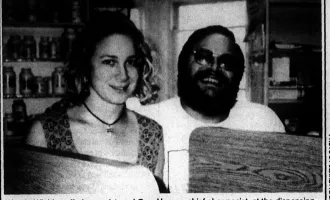Is there life outside of academia? UCSF MIND program helps graduate students and postdocs break into “alternative” career fields
Academics sometimes joke that their training resembles the Ponzi pyramid scheme. This joke may ring too close to truth for many postdoctoral fellows and graduate students.
Even at UCSF only about 25 percent of postdoctoral fellows land tenure-track positions. The rest move to industry or take on careers in other science-related fields. Despite these stark numbers, academic institutions still train graduate students and postdocs as if a tenure-track faculty position was their one and only career choice.
To address this problem, UCSF was one of only 10 universities that received a portion of a National Institutes of Health grant aimed at revamping graduate and postdoctoral training. This grant money led to the creation of Motivating INformed Decisions (MIND) program, which is currently in its pilot year. The pilot round of the program enrolled 40 graduate students and postdocs and is guiding their career exploration for a full academic year.
The program begins with a three-day course that covers all the theory behind the process of landing your dream job: networking, informational interviews and even job shadowing. Although this course provides relevant information, the true benefit of the MIND program lies in the programming that follows—monthly peer group meetings led by the career advisors. These small peer groups have several benefits for making solid progress towards career changes.
Firstly, participants are accountable for taking tangible actions toward career goals.
During each meeting, every participant has to report career goals for the past month (the “contract”), what was actually done (the “report”) and the contract for the next month.
All of it is written down and posted on the online forum. They are accountable to each other for their progress, which leaves no more room for lame excuses why certain objectives were not achieved. If they feel stuck, the team will help them troubleshoot the ways around the obstacles.
Secondly, MIND participants can leverage the power of collective knowledge.
Research training does not allow trainees to meet a lot of people outside of academia. The bench often becomes scientists’ second home and their pipettes, their best friends. As a result, a typical postdoc knows very little about careers outside of academia.
In MIND, the cumulative knowledge of the group is very powerful. Once participants start discussing their dream job, say, consulting, it turns out that someone in the group has a consultant friend with whom they can chat. Or someone may have heard of this amazing course or book that would really help someone else get a foot in the door of the regulatory affairs world. Essentially, MIND dramatically expands each participant’s network of contacts. Best of all, they are surrounded by supportive peers who share their eagerness to secure an exciting job. Enthusiasm breeds enthusiasm.
Finally, MIND helps participants with the nuts and bolts of navigating a career change. Building a career is a dynamic process that requires flexibility, endurance and a great deal of creativity.
A few things I’ve learned in the MIND program is that you cannot just follow someone’s steps; you have to be resourceful and pro-active. This is actually not that different than leading a research project and can be a lot of fun. You just need to get to the fun part.
In my experience, in order for it to be fun you need to start your career exploration months before you find yourself in a dire need of a job. You need time to talk to people who would answer your questions about the anticipated future career. Will the job be challenging enough? Does it develop into exciting future perspectives? What about the pay and the work–life balance? Moreover, if you are serious about making the leap, you need to turn yourself into an attractive candidate.
For example, if I want to get into consulting, how should I get the necessary business experience on my resume? Should I try an internship with one of the UCSF offices? Should I join the UCSF Consulting Club? Should I take the Idea-to-IPO class?
Finally, the MIND program allows you to develop your job-seeking skills. Are you aware of all the hidden places where your dream job can be posted? Do all of your numerous talents shine on your resume? Did you master all these tricky behavioral questions that will come up on your interview?
To answer these questions and more, I would highly recommend the MIND program to all graduate students or postdocs who have ever considered leaving the Ivory Tower or simply care about their future paychecks. To learn more about the MIND program, please visit the MIND webpage at http://mind.ucsf.edu/about.

